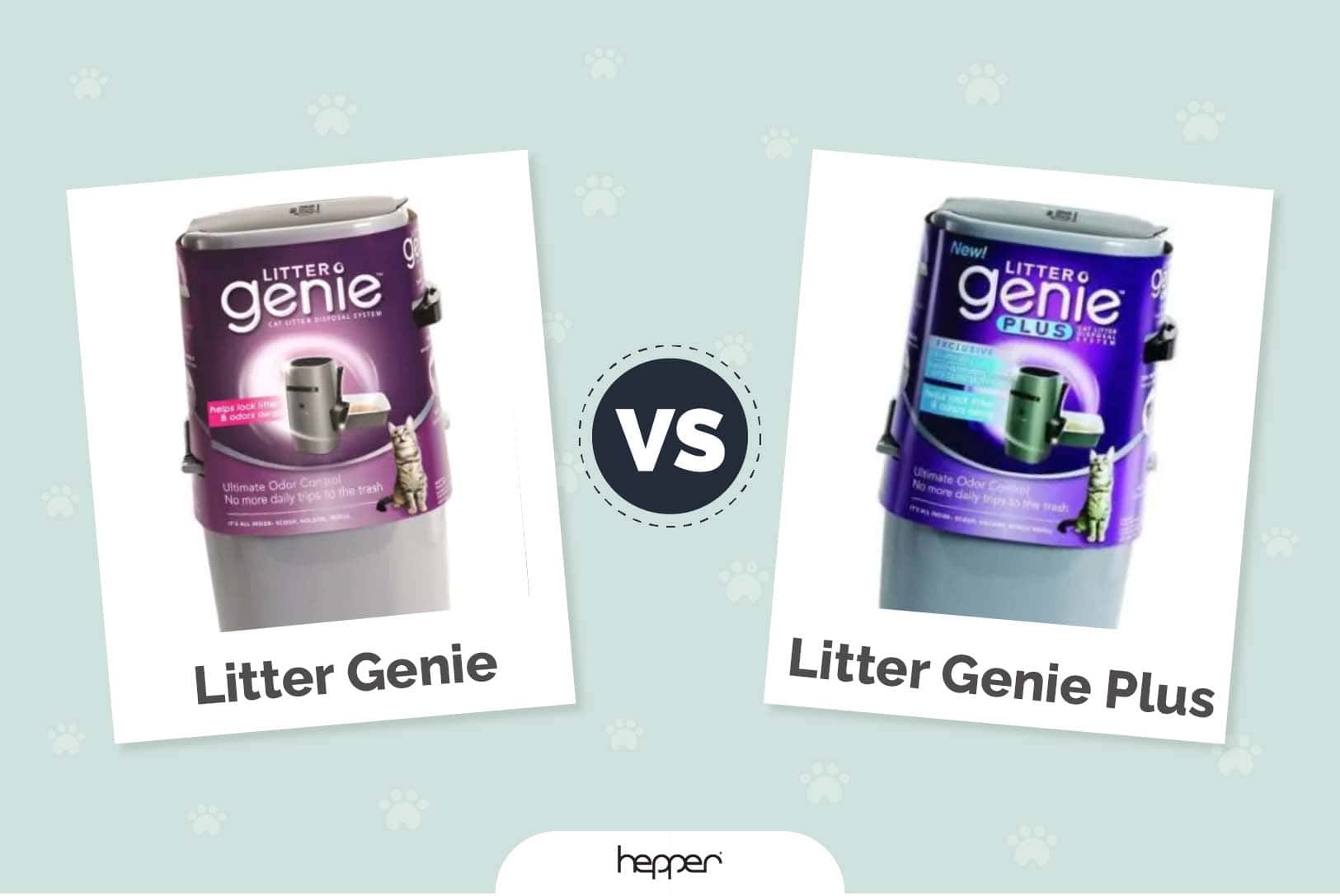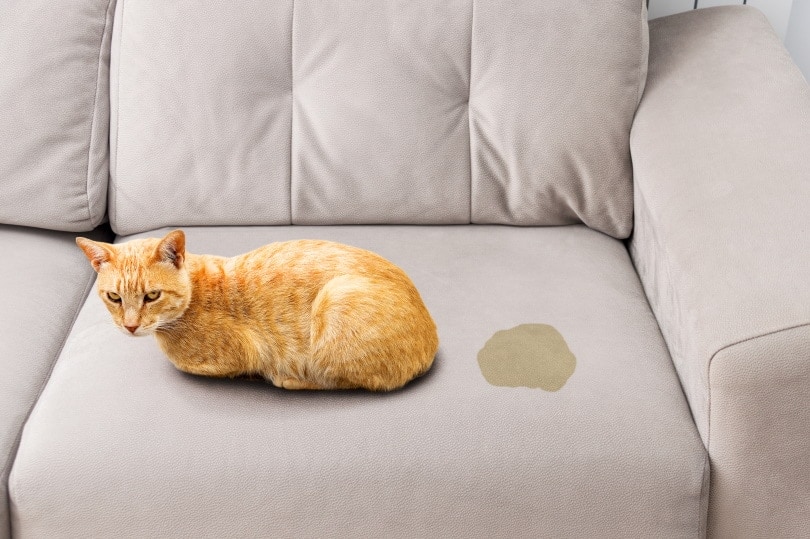Can Cats Eat Wasabi? Nutrition Facts & Safety Guide

Updated on
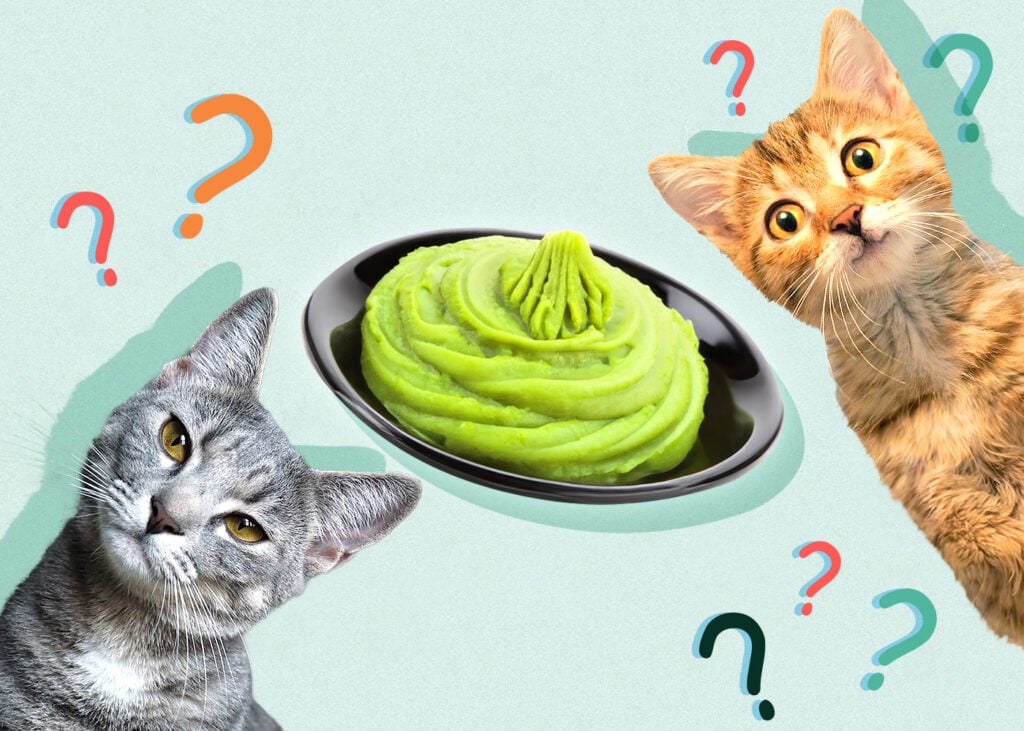
If you’re a cat owner who loves sushi and its perfect garnish, wasabi, you may notice your cat acts a little curious while you’re eating it. It’s normal for our pets to want a taste test of the things we enjoy. When it comes to our kitties, however, when they want something it is highly unlikely that we can avoid giving them at least a taste. We all know how dominating those little fiery felines can be. With this being the case, you may be wondering, can cats eat wasabi? While cats can generally eat this spicy paste, there are a few things you should keep in mind when offering this garnish to your kitty.
Read on below to learn more about cats and wasabi so you’ll be prepared the next time you decide to have a bit of sushi for lunch or dinner. You’ll know whether it is safe to offer your kitty a small taste and not worry about whether it is bad for their health.
Is Wasabi Toxic to Cats?
This is where things get tricky. If you prepare the wasabi yourself and know what’s in it, then it shouldn’t be harmful to your kitty. However, wasabi is a member of the Brassicaceae family of plants. Many of the plants of this family can be dangerous to your kitties. This includes horseradish, a plant closely related to wasabi, and is considered by most to be toxic for our cats.
Now, as we mentioned, if you prepare your own wasabi and know what’s inside, then your cat can taste it. Unfortunately, wasabi from restaurants or bought in the store may not be true wasabi. It’s common for manufacturers to mix other plants from the Brassicaceae family, such as horseradish and mustard, when making their wasabi. For this reason, if you want to share your sushi and wasabi with your cat it is best to make the garnish yourself so you can trust the ingredients.

Do Cats Like Wasabi?
If your cat’s curiosity is getting the best of them and you want to share a taste of your freshly grated wasabi, let them try a small amount. Most likely, your cat will not enjoy it. Wasabi, whether it is real or fake, includes isothiocyanate. This chemical makes wasabi hot but is also considered a natural repellent for cats. Thanks to this, your cat may only decide to share your wasabi only once. Don’t expect it to become one of their favorite treats.
Is Wasabi Beneficial for Cats?
Wasabi doesn’t provide your kitty with any special benefits. Cats are obligate carnivores. This means meat or protein is their main source of nutrition. Greens and veggies can provide them with additional nutrients but aren’t necessary. While giving your kitty a taste of wasabi may help end their curiosity for your dinner plate, it won’t do anything special for their diet.
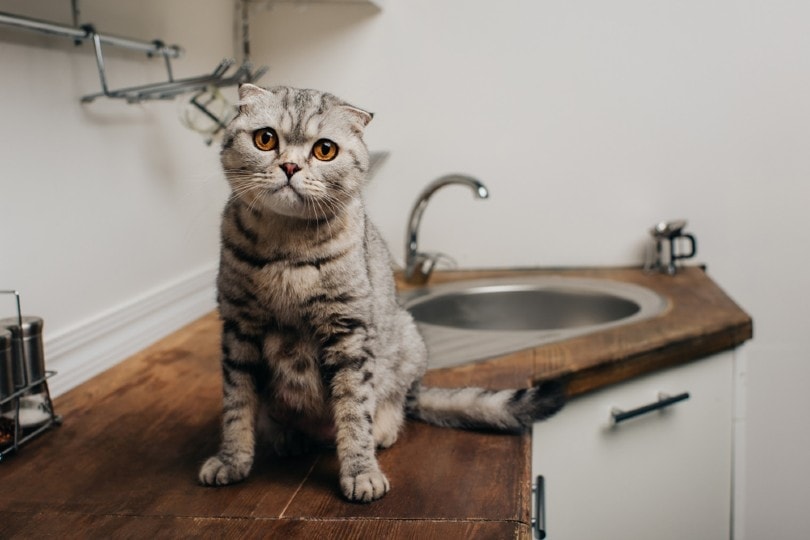
Wasabi and Humans
Your wasabi may not be beneficial for your kitty, but it could provide you and the other humans in the home a few health benefits when it becomes an occasional part of your diet. First and foremost, however, wasabi has antimicrobial properties. For us, this means it can help us fight bacteria and possibly help us avoid food poisoning.
Wasabi is also known for its ability to help us fight tooth decay and cavities. By stopping the bacteria from growing can help us keep our smiles looking great. There are also studies being conducted concerning wasabi and cholesterol levels in humans as well as its potential of helping kill cancer cells in the stomach.
Wasabi and Kittens
While fresh wasabi may be safe for an adult cat, it isn’t recommended for kittens to try a sampling. Our baby kitties have very sensitive stomachs. The spice found in wasabi could easily make them sick. The last thing you want is for your kitten’s stomach to become irritated. To avoid this issue, it’s best not to give them wasabi or any other spicy foods.
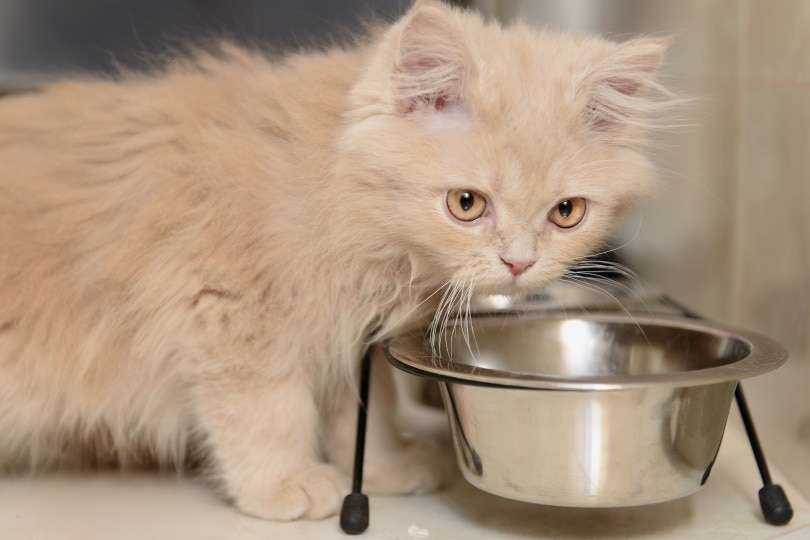
Cats and Horseradish
Now that we’ve learned that pure wasabi is safe for cats, let’s take a look at why you shouldn’t trust “fake” or manufactured wasabi in your cat’s bowl. As we’ve discussed, it is common for manufacturers to use horseradish when making wasabi due to the difficulty of cultivating the wasabi plant. While there is still some debate on the issue, most believe horseradish to be dangerous for our feline friends.
Unfortunately, there is no part of the horseradish plant that is considered safe for a cat. You should always avoid giving your cat any foods with it included in the ingredients. While a small amount may not be harmful, large quantities of horseradish can lead to severe stomach irritations and even death. If your cat accidentally ingests horseradish keep your eyes open for foul breath, excessive drooling, and stomach issues. If any of these symptoms occur, take them immediately to your veterinarian for treatment.
Now that you know what you can safely feed your cat, it’s just as important to find a bowl that supports their health and well-being. With whisker-friendly bowls and a wide tray to catch any spills, our Hepper NomNom Cat Bowl is our favorite option.
In Conclusion
Wasabi, spicy and yummy as it is, isn’t a food that will benefit your cat in any way. If you choose to give your cat a taste in hopes of derailing their ongoing pursuit, feel free, but only if it is pure wasabi. By making fresh wasabi yourself, you can ensure no harmful additives are present that may harm your kitty. Don’t be surprised, however, if after a taste your cat turns its nose up. It isn’t your cooking. It’s simply the fact that wasabi doesn’t rank high on their lists of yummy treats you should be sharing.
Related Reads:
Featured Image Credit: sasazawa, Shutterstock


